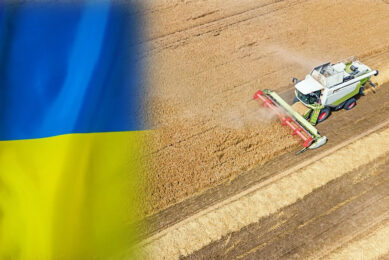War in Ukraine halts pig farming expansion plans
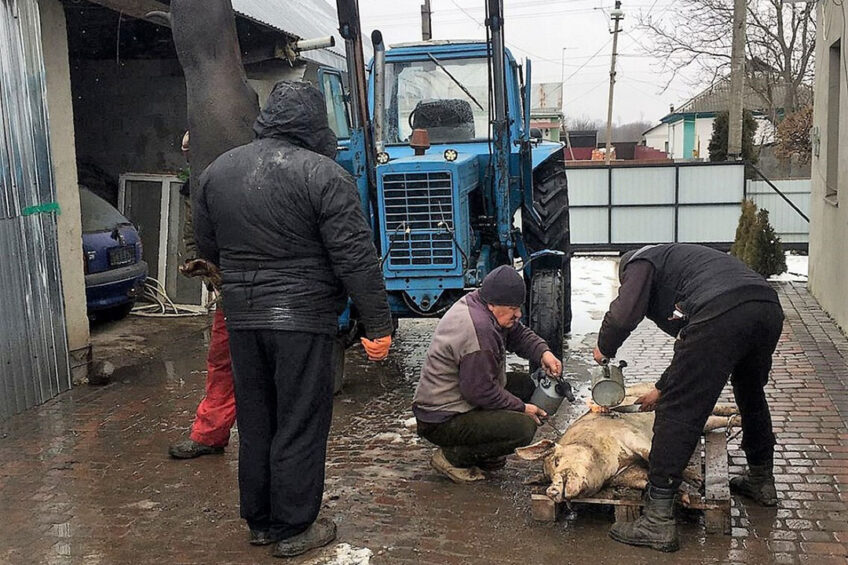
The war in Ukraine is being felt on a pig farm level as well. Farmer Kees Huizinga, of Dutch origin but having built up a sow farm as well as a dairy facility in Ukraine, had to shelve plans to expand the Ukraine farm to 1,200 sows due to future uncertainties.
While Russian soldiers draw closer to ‘TOV Kischenzi farm’, owners Kees Huizinga and his 2 business partners have been forced to completely replan this year’s management programme.
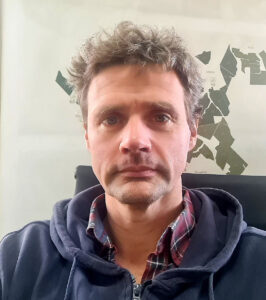
Huizinga is originally from the Netherlands and has run his large 15,000 ha farm, near Cherkasy, 200km south of Kyiv, for the past 20 years. Being a traditional Ukrainian mixed unit, the farm runs a herd of 2,000 dairy cows in addition to the pig herd of 450 sows. He also grows various grain crops and vegetables.
Huizinga had big plans to increase sow numbers to 1,200, and selling the offspring as weaners to local small farms to fatten. A new more modern pig unit was going to be developed as well.
February 24, 2022, will go down in history for all the wrong reasons, and it is a day that Huizinga never thought could happen when Russian troops invaded Ukraine.
Relocating to the Netherlands
The moment it happened, Huizinga sent his wife, Emmeke, and their 2 young daughters back to the sanctuary of the Netherlands, and he followed 2 weeks later. Agriculture in Ukraine, known as the breadbasket of Europe, has been performing very well over the past number of years with excellent commodity prices.
However, all that has changed and there is much uncertainty about how agriculture will pan out this year, which is hugely dependant on when, or if, the war stops. While Huizinga is back in the Netherlands, the farm is being run by the 400 staff, until it is safe for him to return. As no-one is buying the farm’s weaner pigs any more, the farm has been forced to fatten them, putting extra pressure on already diminishing feed supplies.
Huizinga, who is also fluent in Ukrainian and Russian, said: “We started out there with 1,000 ha and grew that up to 15,000 ha, mostly leased as foreigners cannot own land there. When I became a farmer, I knew I would have to wage a figurative war against the traditional enemies of food production such as pests, weeds and disease, but I didn’t expect to be in a real war zone with a deadly enemy.”
“The Ukraine Agrarian Association has around 1,100 members farming a total 3.5 million ha in Ukraine,” said Huizinga. “They asked me to go to the west and be their voice in case we lose internet connection in Ukraine.”
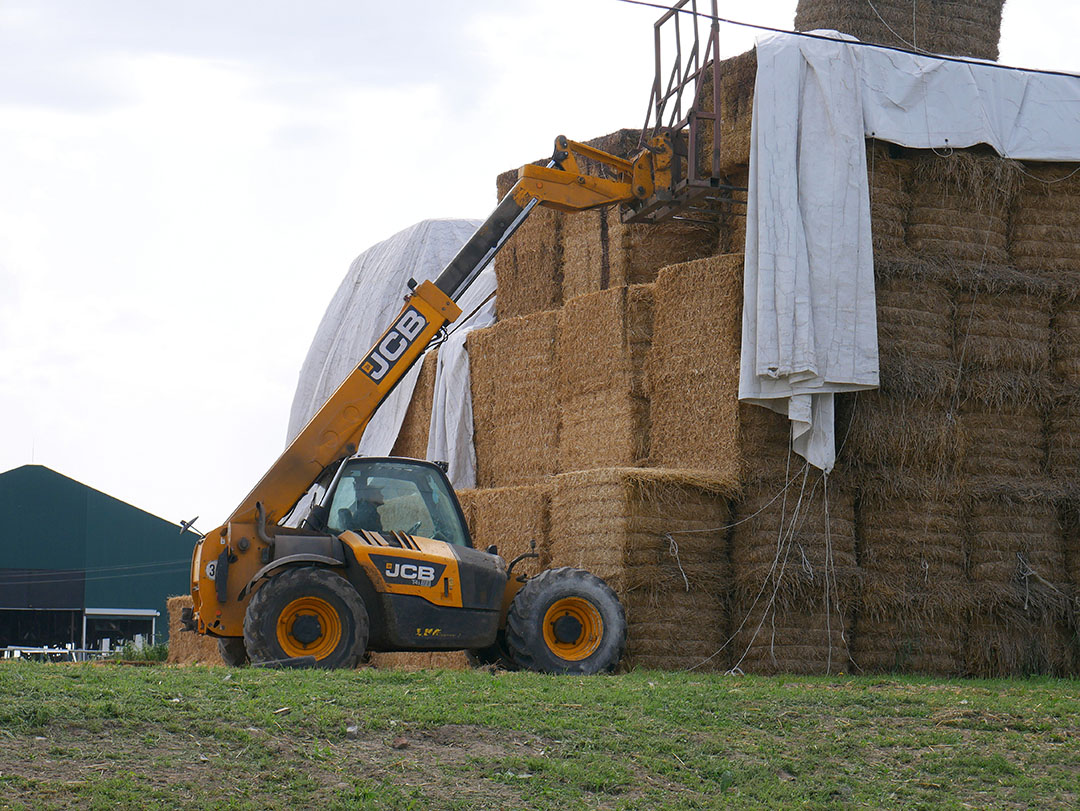
Labour intensive pig unit
The current pig unit is very labour intensive and the pigs are kept on solid floor pens with one side bedded in straw produced on the farm. “We have around 30 staff working on the pig unit,” Huizinga said. “It’s a labour intensive system here but for good reason in creating employment for local villagers.”
Huizinga added that the pigs are sold as weaners to local farmers who fatten them, which creates furher employment in the local community. “However, no-one is buying now so we are having to keep the piglets longer and fatten them ourselves. This is putting extra pressure on our feed supplies. In fact, we have had to change and reduce the rations to ensure they last a bit longer. We still have wheat, barley and corn in stock on the farm, but not enough for the rest of the year. It’s better to use the wheat to make bread.”
Feed stocks left
“There is only enough feed for the next 6 weeks in the shed. We have plenty of corn so it looks like we have to bend all the rules when it comes to feeding pigs. We will have to feed as much corn as we can and fully understand this will make the pigs too fat, but in these circumstances that is the least of our worries,” Huizinga explains.
For the world market the farm grows corn, wheat, barley and sunflowers that are exported out of the Black Sea ports, but the Russians have closed those ports now. Incidentally, Ukraine is the biggest sunflower exporter in the world and accounts for over 50% of global sunflower production.
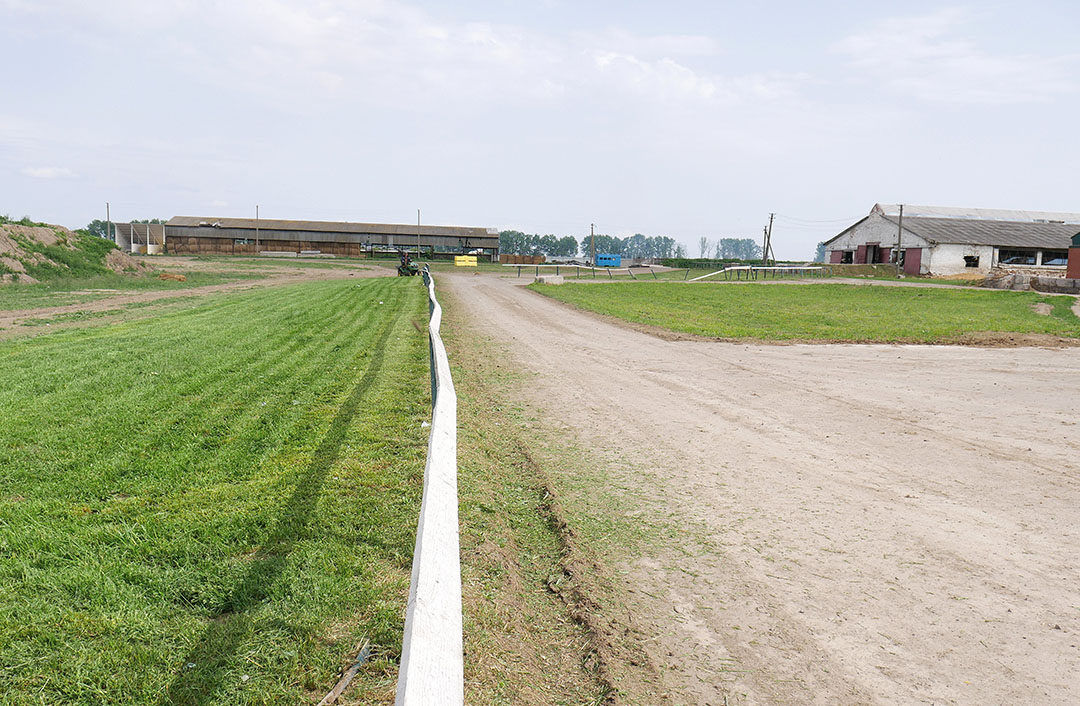
Huizinga says: “We are also reviewing our fieldwork programme as we don’t know when we can get out to sow seeds. With the Russians getting closer it’s best the tractors work at night, but then with the lights on they become huge targets for invaders.”
Fuel and fertiliser are both in short supply on the farm, too. “We have to work around that. We might stop growing sugar beet this year because of the uncertainty that the mills will be operational. Our farm produces 70,000 to 80,000 tonnes of grains per year but right now the export markets are closed.”
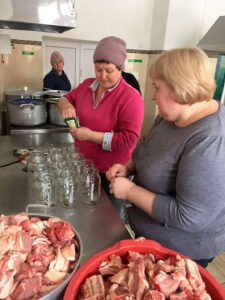
Farm staff off to the front
While the area that Huizinga farms in is currently relatively quiet, some of the farm staff have gone to fight the Russians. As they cannot be contacted by phone, he can only hope they will survive. He says, “There are no Russians in our area at the moment and I hope it stays like that. Around 25 of our staff have gone to fight the Russians. Some others are working as local security to keep an eye out for saboteurs. Our farm, like most farms and local villages, is preparing food and sending it to the Ukrainian army and to Kyiv. As we cannot sell the pigs, some are being slaughtered on the farm. Local ladies in the school are processing the pork and then it’s delivered to the Ukrainian army as well as staff and villagers.”
He adds, “Putin is now targeting supermarkets and food storage facilities with bombs. He is using hunger as a weapon. He must be stopped.”
Presence in the Netherlands
Huizinga adds, “I will stay in the Netherlands for now. I have a few meetings arranged to try to get the west to increase the pressure. Ukraine has done nothing to deserve this. Since the end of the Cold War and the dissolution of the Soviet Union, we have striven to live in peace and harmony with the wider community of nations. We have tried to develop a civilised democracy. Although we still have a long way to go, we have made great progress. We all need to stand together and get this stopped now. I will need to get back to the farm as soon as possible. I’m very worried about my staff. They have plenty of food, but we don’t know what can happen.”




